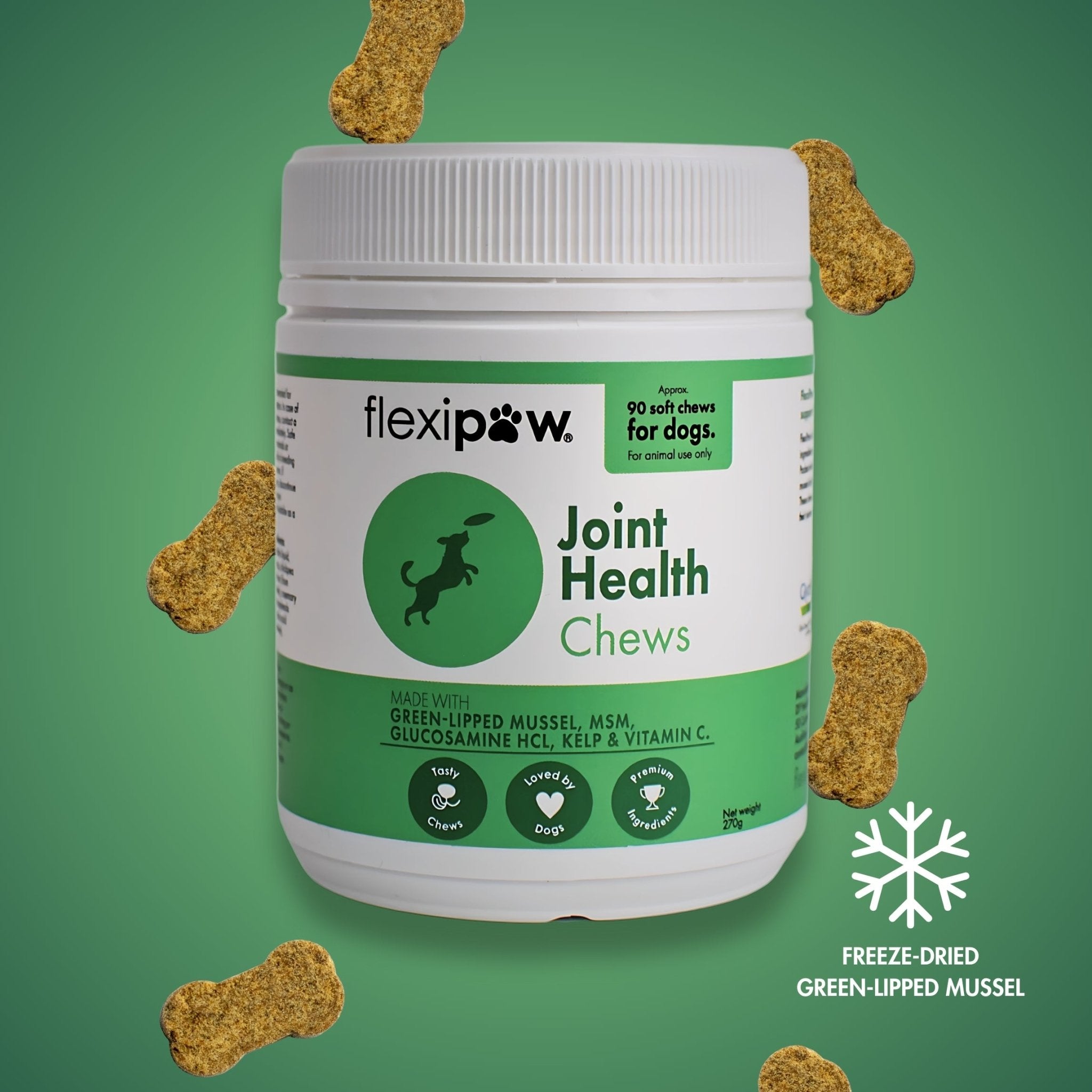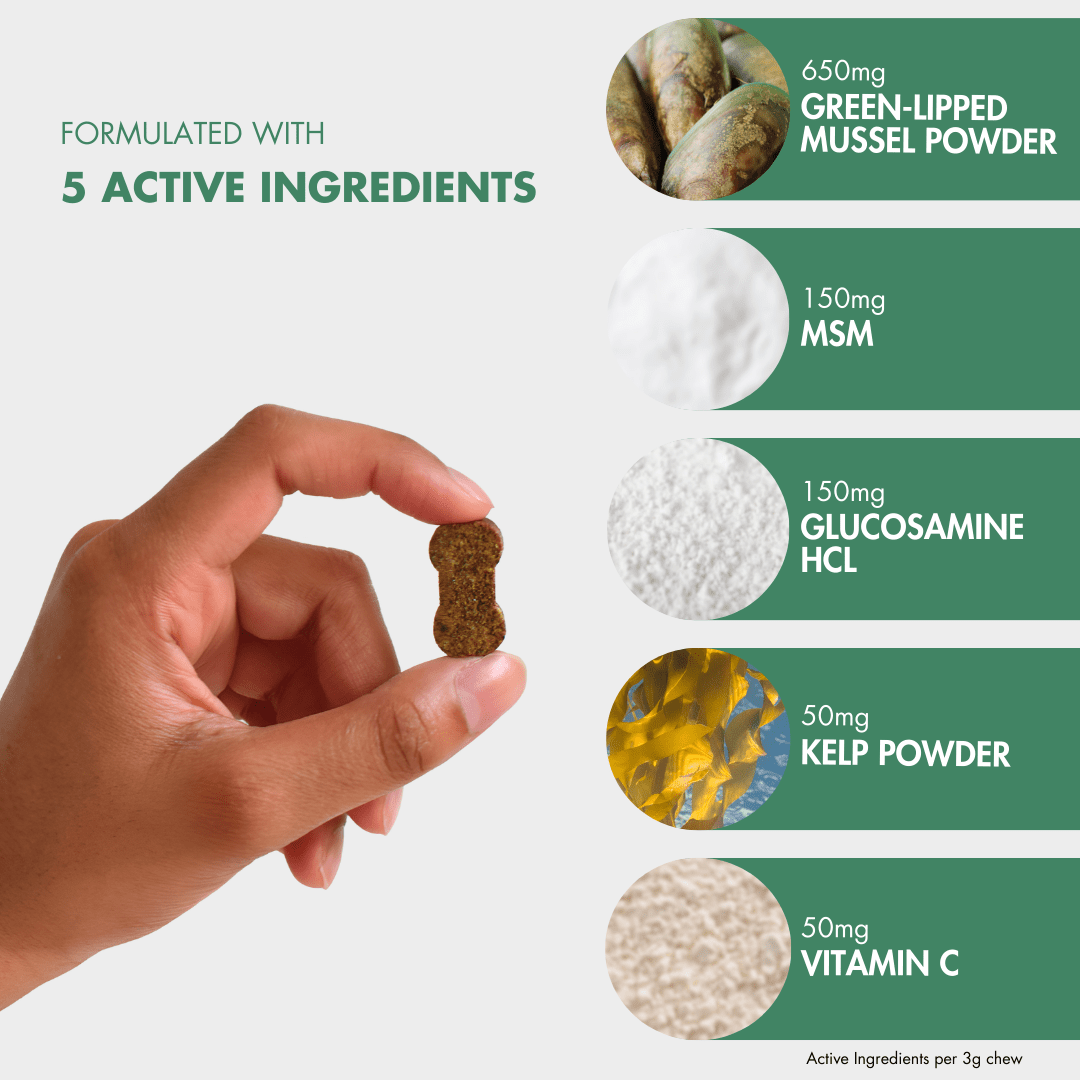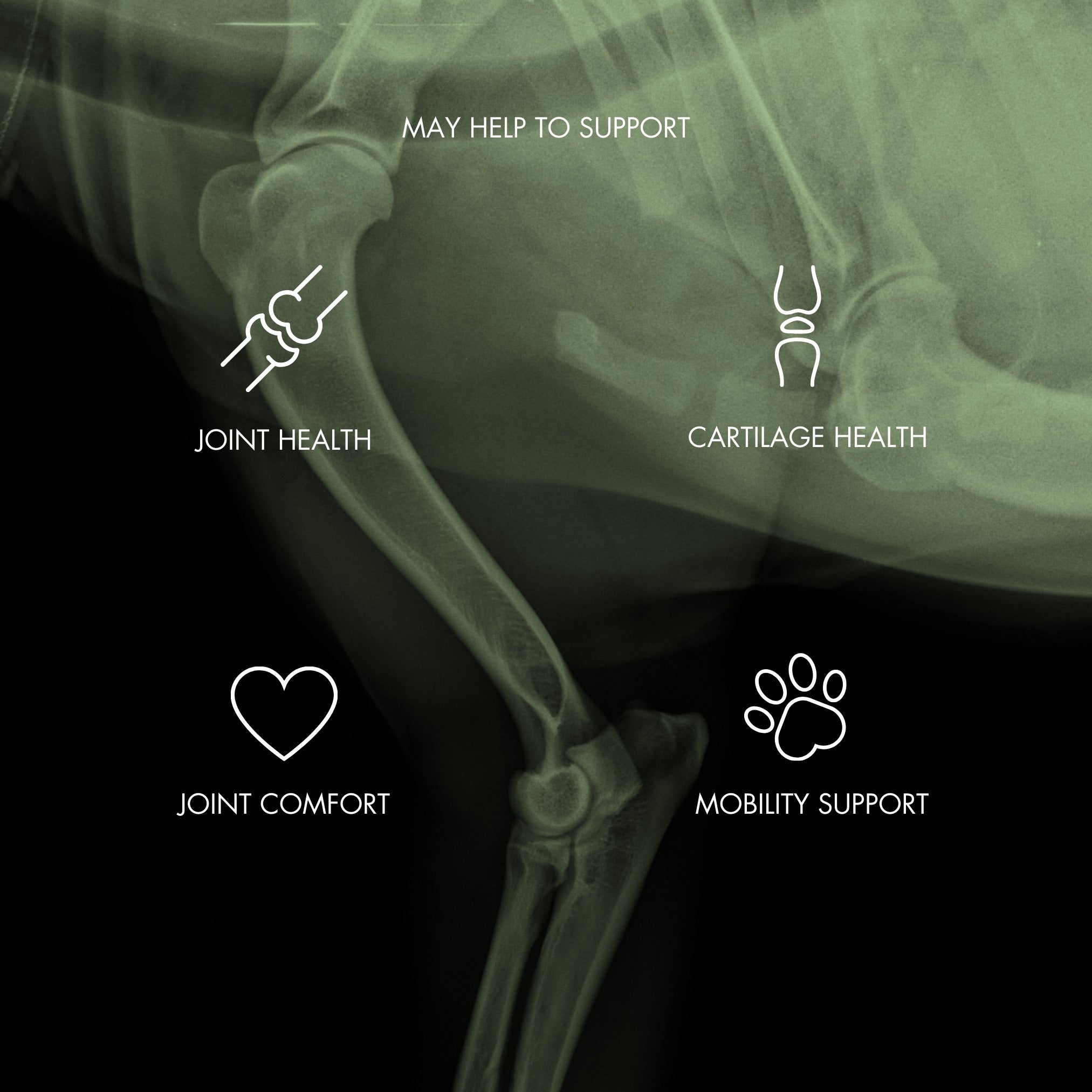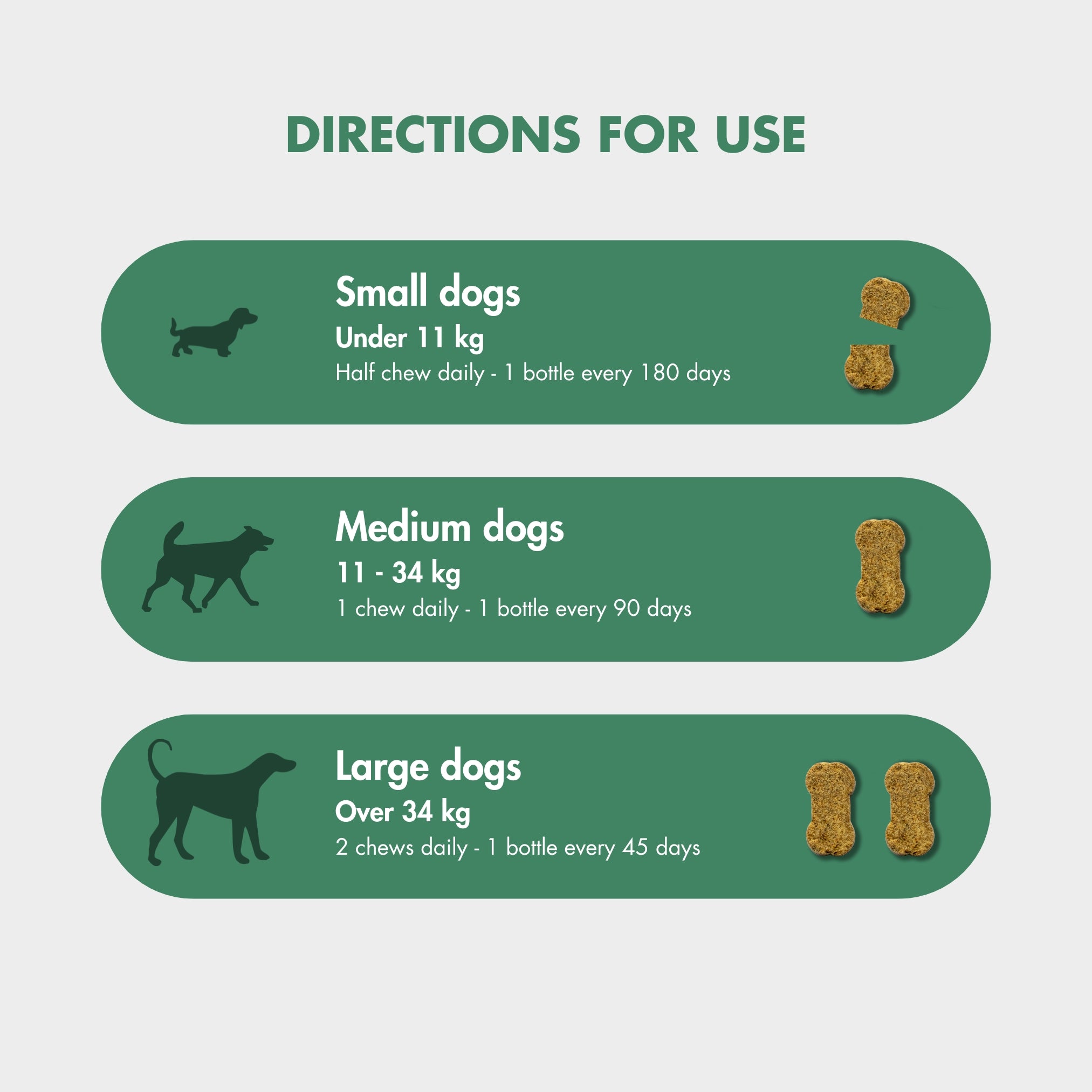Ingredient Spotlight: MSM (Methylsulfonylmethane)
Ever wondered about MSM, an ingredient often highlighted in joint health supplements for our canine companions? As loving dog owners, we're always seeking ways to keep our furry friends active and comfortable, especially as they navigate their senior years. Let's delve into what MSM is and why it's gaining attention for supporting dog joint health.
What is MSM? Not as Complicated as it Sounds!
MSM stands for Methylsulfonylmethane. While the name is a mouthful, it's essentially a naturally occurring, organic form of sulfur. Sulfur is a vital mineral, one of the most common in a dog's body, playing a crucial role in numerous bodily functions.
MSM is found in tiny amounts in some fresh foods like fruits, vegetables, and grains. However, the levels present naturally are often low, and processing can further diminish them, making supplementation a practical way to ensure your dog gets beneficial amounts.
Potential Benefits: How MSM Supports Canine Joint Health
MSM, as a source of sulfur, may help support canine joint health. Sulfur is a component found naturally within the building blocks of connective tissues, such as cartilage. Providing this nutrient may help support the body's normal processes for maintaining these tissues important for joint structure. In turn, this nutritional support may contribute to general joint well-being and comfortable mobility in dogs.
Supporting Your Dog's Active Life with MSM
In essence, MSM offers a natural, sulfur-based approach to support your dog's joint health and mobility.
When choosing a joint supplement containing MSM, look for high-quality ingredients from reputable sources. Often, MSM is combined with other well-regarded joint nutrients like Glucosamine, Chondroitin and Green-Lipped Mussel for broader support.
Remember, supplements like MSM work best as part of a holistic approach to your dog's wellbeing. This includes providing a balanced diet, maintaining a healthy weight, ensuring appropriate levels of exercise for their age and condition, and scheduling regular check-ups with your veterinarian. By considering these factors, you can help your canine companion stay active, comfortable, and happy for years to come.
Disclaimer: The content on this website is for educational purposes only and should not replace professional veterinary advice. We recommend you talk to your veterinarian if you have any concerns, if the lameness worsens or are unsure. Products on this website are not intended to diagnose, cure, treat or prevent any disease. The statements made on this website have not been evaluated by the Food and Drug Administration.







